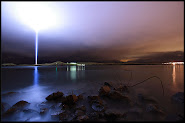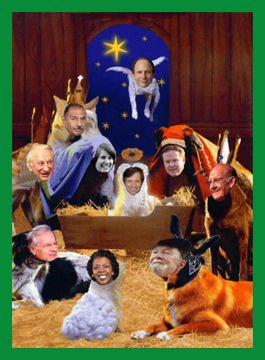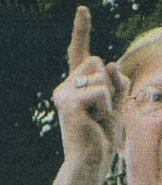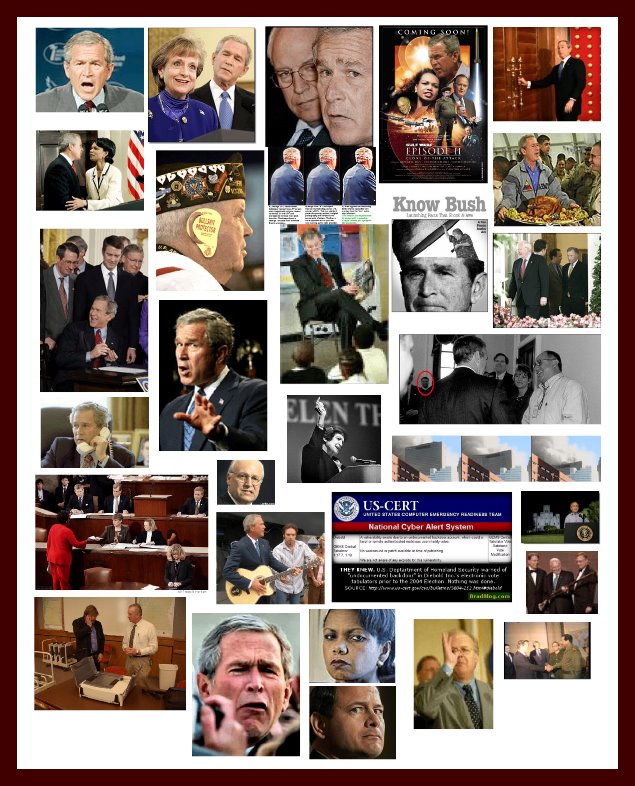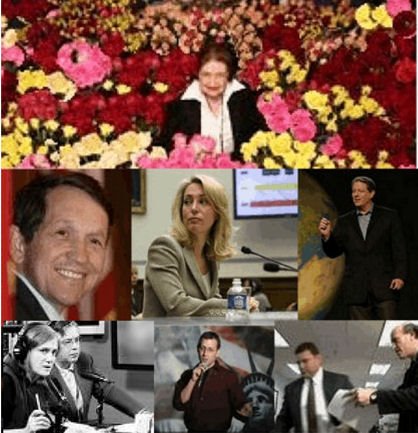Since 2005, advocates for fair elections with all votes counted have been trying to get Jon Huntsman’s attention, but he has always deferred to the Lt. Governor, the designated executive director of Utah Elections. Huntsman, who appeared to be a Governor of both courage and conscience when he stood up against the Divine Strake Test and in favor of Civil Unions for gays, nonetheless, kept his eyes above and his nose clean when it came to the issue of his Lt. Governor and the hackable Diebold Voting Machines we are stuck with in Utah.
While others concerns about Lt. Governor Herbert becoming Utah's governor are focused on his conservative views,
the failure to even discuss Herbert's most bullying policy -- because most people are blind to it -- shows how successful the man is at misinforming and intimidating at the most important levels.It's this simple:
Lt. Governor Gary Herbert is the one person who unilaterally decided, against the advice of computer science experts, to purchase the Diebold Touch Screen Voting Machines for the State of Utah, to comply with the 2005 Help America Vote Act (HAVA), the law primarily authored by the since-imprisoned Congressman Bob Ney, under the influence of the $275,000 in funds Diebold paid in 2005 to the since-jailed-lobbyist Jack Abramoff’s company.
When
Bruce Funk, the veteran Emery County Clerk, received the Diebold machines for his county and dutifully performed the “acceptance testing”,
he found absurdly elementary defects that could wreak havoc on an election day: crooked paper feeds, open memory card bays, flimsy parts that got stuck or loose. A closer look brought the discovery of inexplicable anomalies in the memory cards.
A responsible election official for over twenty years, Funk had paid attention to issues of the reliability and security of these machines. He read in December 2005, Finnish
computer security expert Harri Hursti and Dr. Herbert Thompson of Security Innovations, Inc. had demonstrated for Leon County, Florida election Ion Sanchez the hackability of the Diebold Optical Scan voting machines which could change election outcomes (see HBO’s documentary, Hacking Democracy, October 2006). That same day, the CEO of Diebold, who’d infamously pledged to secure Ohio for George Bush in a 2003 memo, suddenly resigned.
So, when Funk couldn't get sensible answers to his questions about the memory cards from Diebold, he contacted Bev Harris at BlackBoxVoting.org, who had arranged for the demonstration in Florida. In March 2006, Harri Hursti and Dr. Thompson from Security Innovations Inc. came to Utah to address the Bruce’s questions.
After examining two Diebold touch screen machines, documented on videotape, and a second series of testing by both Hursti and Security Innovations,
Hursti explained to Funk that in addition to simplistic design flaws that presented electrical safety hazards, the machines’ architectural design included two critical security holes which enabled hacking and then efficiently covered up evidence of the hacking. Hursti’s written report was released on May 6, 2006.
But Bruce Funk didn’t wait for the report. On March 23, 2006, he courageously announced that security experts had found dangerous security flaw in the Diebold Voting machines and so he would not use the machines in Emery County. Diebold immediately claimed their warranty contract had been violated and that it was
fining Emery County $40,000 to recertify the two examined machines. Michael Cragun, Lt. Governor Herbert’s Utah Election Director, immediately ordered the locks changed on the room in which the machines were stored, so Funk was barred access to them.
Cragun quickly arranged a
special closed-door meeting with the Emery County commissioners, and on March 27th flew to Emery County with the Lt. Governor’s Chief of Staff, Joe Demma, legal counsel from the Utah Attorney General’s office, and the sales rep and a technician from Diebold. Neither Funk nor the public could attend.
After the meeting, Funk was ordered to use the Diebold machines, period. A comment from Funk made in frustration was taken as an irrevocable resignation and the courageous election official, himself an elected officer, was locked out.
The Lt. Governor’s Office thus intimidated Utah’s election officials and personnel into compliance and silence, regardless of what problems are witnessed. While Thad Hall from the University of Utah, with ties to the voting machine industry, argues down concerns reported in the national media about the hackability of electronic voting machines,
the Utah Elections website, part of the Lieutenant Governor’s website, eliminated the word “Diebold” even before Diebold renamed itself Premiere Election Systems.At this point, Diebold has been decertified in multiple states across the country, most notably in California, after the Secretary of State conducted an intensive multi-level testing of the machines, and found Diebold to be not only hackable, but uncooperative.
In March of this year, Diebold/Premiere admitted that flaws in their machines’ audit system could result in undetectable deleted votes.Meanwhile, Lt. Governor Herbert had most recently been in the news, before the announcement of Huntsman ambassadorship, as being unwilling to enforce the new Utah campaign contribution reporting law. He’s protecting the lobbyists – not the voters.
With Herbert in charge, the Governor’s Commission on Strengthening Utah’s Democracy, announced by Huntsman in January, will continue to keep Utahns unaware and docile. Jon, if only you’d noticed. . .


